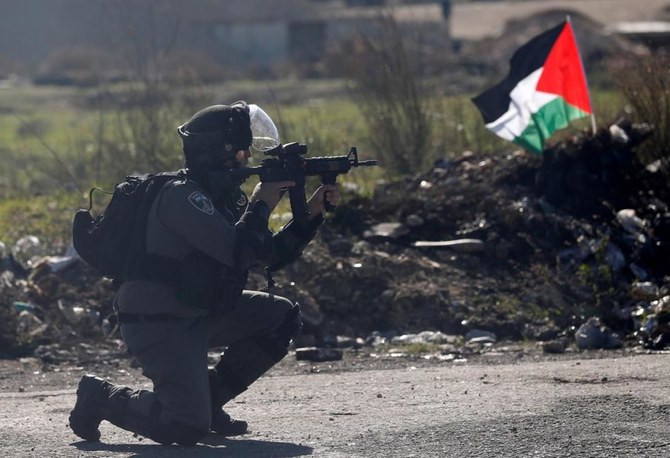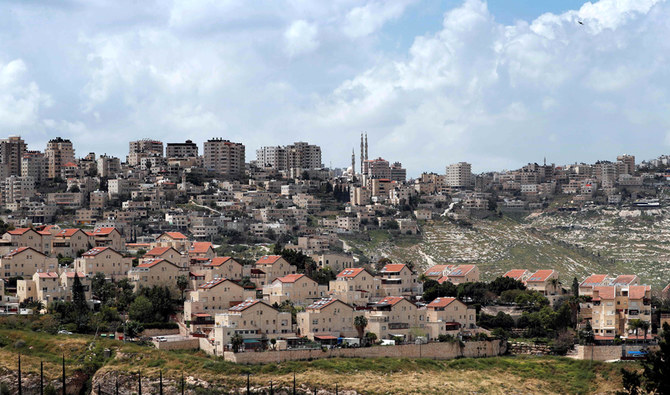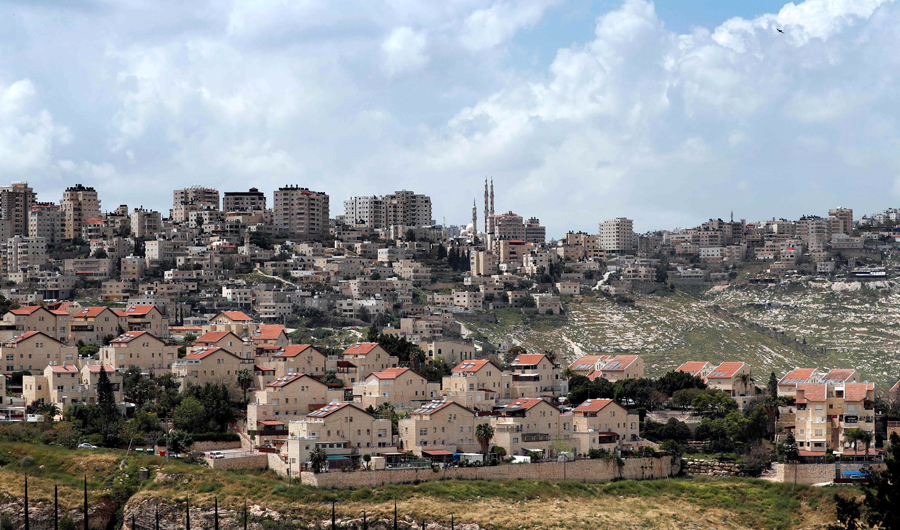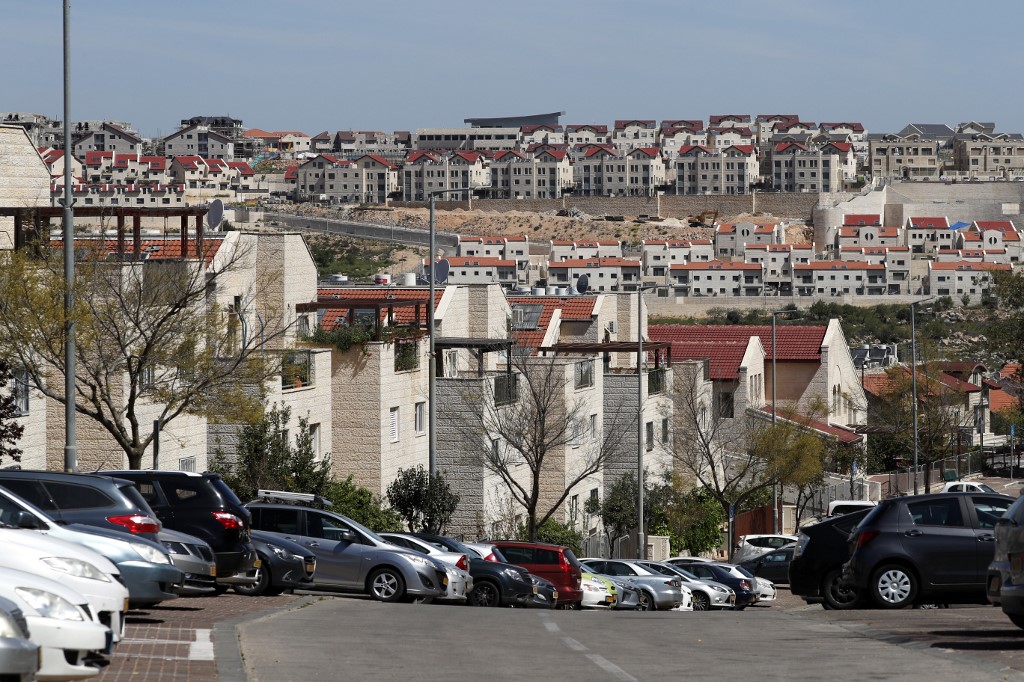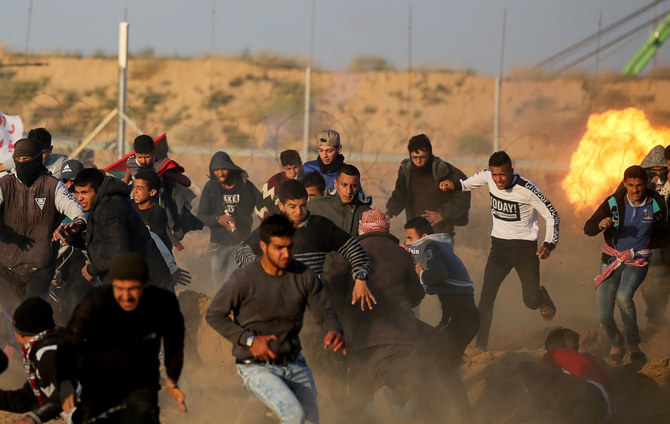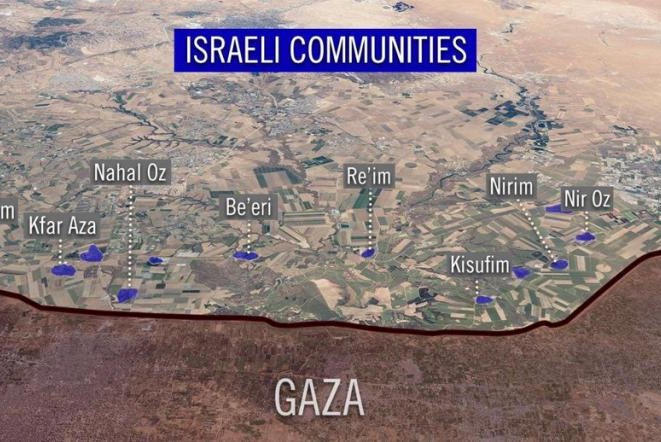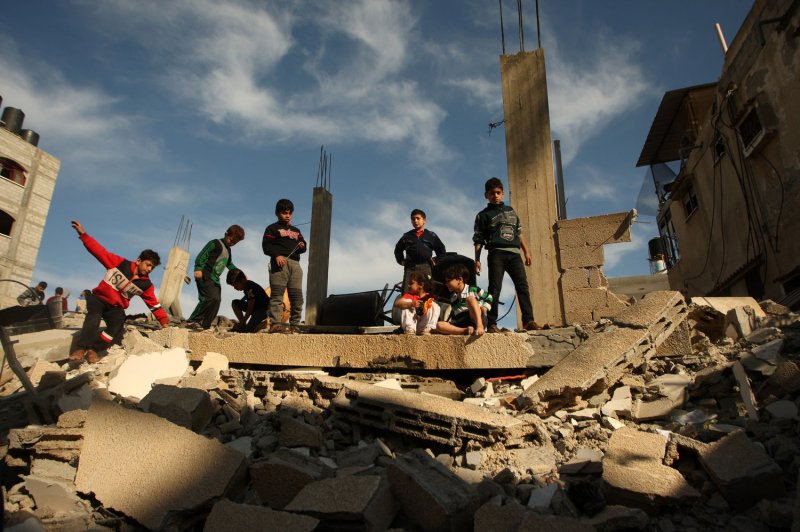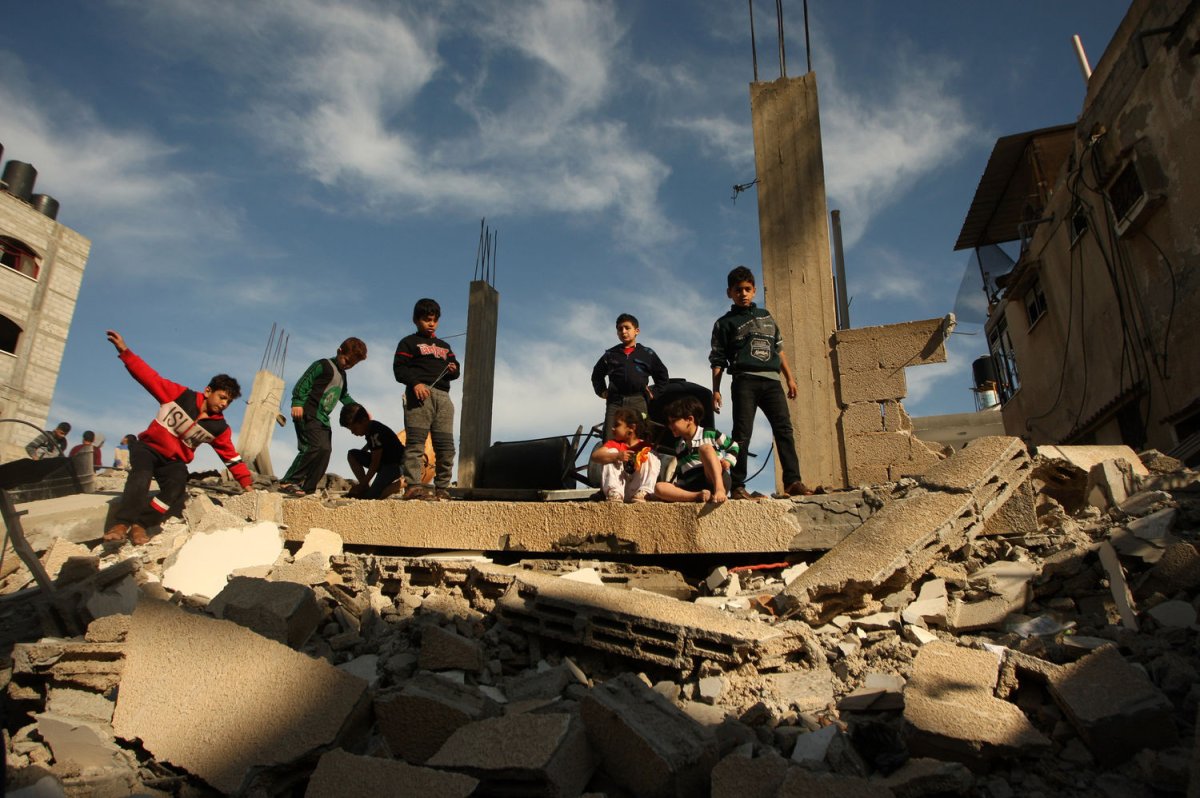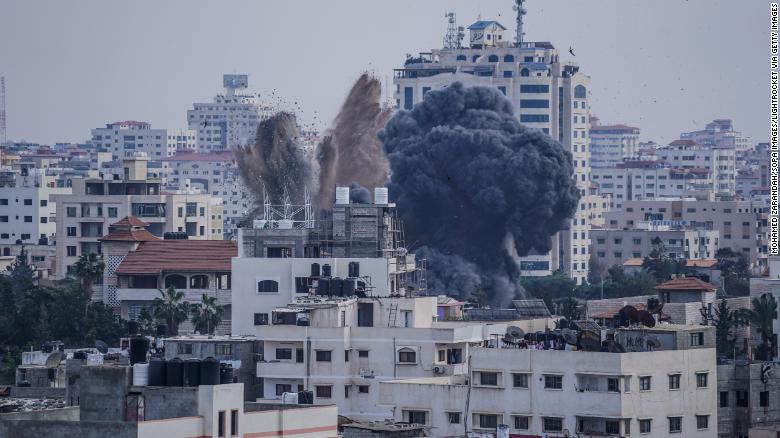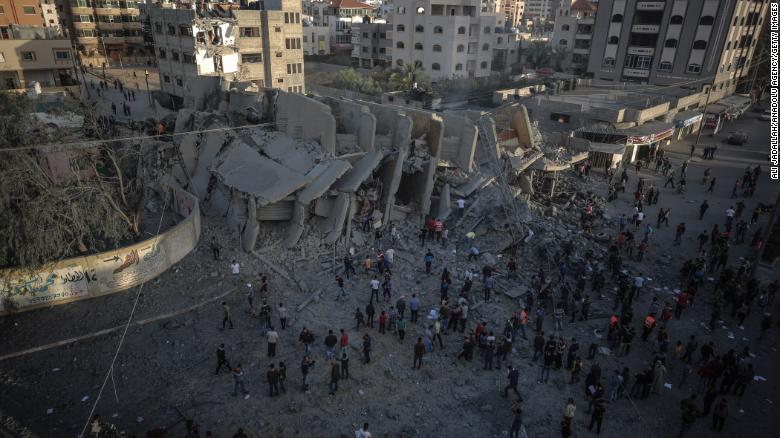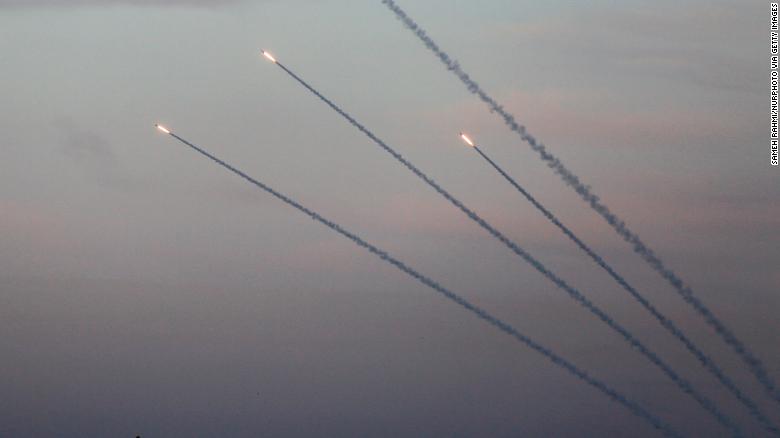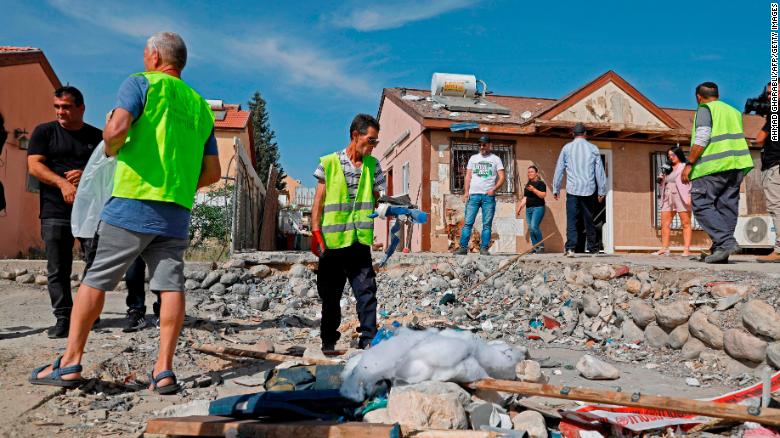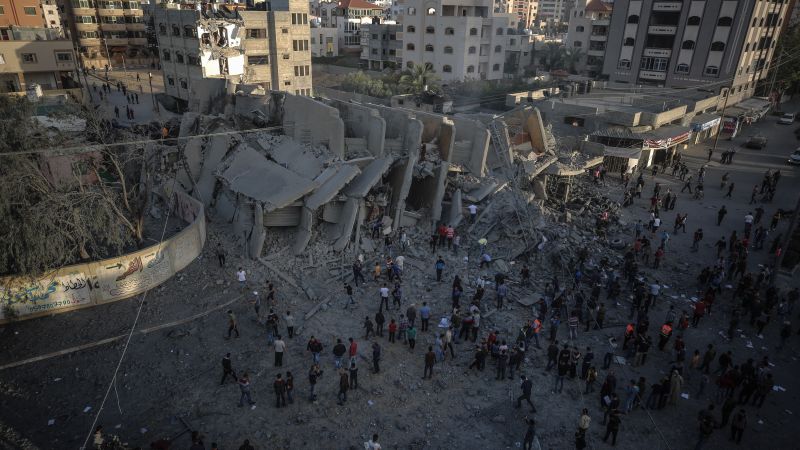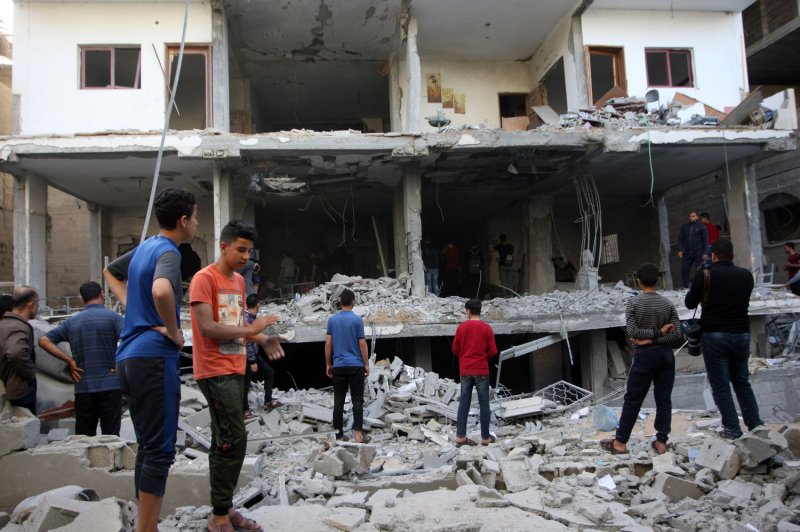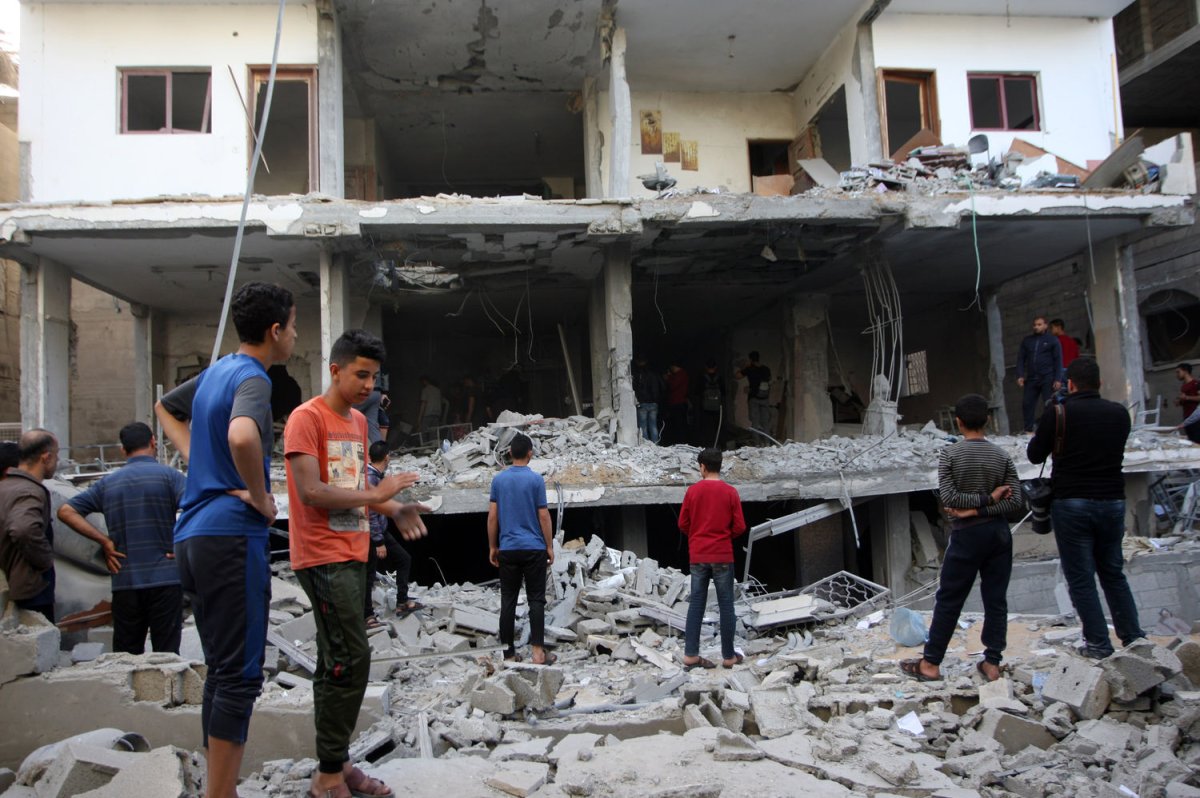Palestinians face financial crisis as US prepares Mideast plan
May 01, 2019 22:44
Settlement buildings of Maale Adumim in the West Bank. (AFP)
Reuters
- Unless the issue is resolved, the World Bank says, the Palestinians’ financing gap could exceed $1 billion in 2019
RAMALLAH: Israel and the US are putting the financial squeeze on the Palestinian Authority (PA), where opposition to a long-awaited US peace plan and anger over Israeli sanctions remain strong.
Analysts see steep cuts in US aid to the Palestinians over the past year as an attempt to draw them toward a blueprint that Washington promises will have economic benefits but which the PA predicts will fall short of endorsing Palestinian statehood.
And during Israeli Prime Minister Benjamin Netanyahu’s successful re-election campaign, his right-wing government imposed sanctions that have pushed the Authority toward financial crisis.
In February, Israel announced it would cut by 5 percent the approximately $190 million in tax revenues it transfers to the Palestinian Authority each month from imports that reach the occupied West Bank and Gaza.
The deducted sum represents the amount of money paid by the Authority, which exercises limited self-rule in the West Bank, to families of Palestinians convicted and jailed by Israel for security offenses, including lethal attacks on Israelis. Palestinians hail their jailed brethren as heroes in a struggle for an independent state and their families as deserving of support.
Palestinian President Mahmoud Abbas has refused to accept the partial tax remittances from Israel, saying the PA is entitled to all the money under interim peace deals.
Unless the issue is resolved, the World Bank says, the Palestinians’ financing gap could exceed $1 billion in 2019, putting further strain on an economy grappling with a 52 percent unemployment rate.
Already facing international donor fatigue, the Palestinians were dealt a heavy blow by the Trump administration’s cut last year of hundreds of millions of dollars of aid. In February, the US Agency for International Development announced it had ceased all assistance to the West Bank and Gaza.
While the US and Israel are applying financial pressure to the Palestinian Authority for different reasons, it is happening just as the PA is being leant on to accept the US peace plan.
Palestinian suspicions over the still-secret US proposals, due to be announced in June, and defiance of Israeli sanctions continue to run deep despite the arm-twisting.
Salary cuts
Khalid Al-Asili, the PA’s economy minister, told Reuters in an interview last week that it has been struggling to manage on just 36 percent of budgeted revenues.
The Authority slashed the salaries of government employees in February, March and April to weather the budget crisis, with some Palestinian public servants’ wages cut in half.
“Unless they find a solution ... it will be a disaster for the Palestinian economy,” Asili said.
With Trump’s “deal of the century” about to be unveiled, Tareq Baconi, an analyst with the International Crisis Group, questioned the wisdom of Washington’s financial pressure on the Palestinians.
Such a strategy, he said, stemmed from the “misguided belief that economic benefits could be sufficiently compelling for Palestinians to relinquish their political demands.”
One of the architects of the Trump plan, the president’s adviser and son-in-law Jared Kushner, declined to say in public remarks in Washington last week whether it called for a two-state solution, a goal of past efforts to end the Israeli-Palestinian dispute.
Abbas and his officials have refused to deal at a political level with the Trump administration since the US president’s recognition of Jerusalem as Israel’s capital in 2017 and his move of the US embassy to the holy city last May.
Palestinian Prime Minister Mohammed Shtayyeh has rejected out of hand “any political initiative that does not call for ending Israeli occupation and establishing an independent and sovereign Palestinian state with Jerusalem as its capital.”
The Palestinians have long sought to set up a state in the West Bank and Gaza Strip, territory Israel captured in the 1967 Middle East War.
Netanyahu further clouded the statehood issue when he said during the election race that he would annex Israeli settlements in the West Bank if he wins, a move that Palestinian leaders said would kill any prospects of peace.
Risks for both sides
While both sides await the US proposals, the financial sanctions on the Palestinian Authority could be a double-edged sword, posing risks to its stability and for Israel as well.
“Given that the PA’s main source of legitimacy is its capacity to employ a considerable proportion of the Palestinian workforce, internal discontent could challenge its ability to govern effectively,” Baconi said.
For Israel, weakening the Palestinian Authority could have an impact on Palestinian security forces that cooperate with the Israeli military in the West Bank.
“Israel takes it for granted that is has not experienced any major terrorist attack for years now,” said Avraham Sela, professor emeritus of international relations at the Hebrew University of Jerusalem.
“Coordination with the PA is invaluable for Israel’s security,” he said.
Economy Minister Eli Cohen, a member of Netanyahu’s security Cabinet, said on Monday that Israel has “no interest” in the Authority’s collapse.
But, he said on Israel’s Reshet TV, withholding tax revenues equivalent to the sums of “stipends and pensions being paid to terrorists” is justifiable.
‘Catastrophic cuts’
In the West Bank city of Ramallah, Kadhim Harb, 50, who works in the Economy Ministry, said the salary reductions have forced him to delay loan payments.
“We are cutting back on everything. We only buy basic things,” Harb, said.
A police officer in Gaza, who asked to be identified only by his first name, Ahmed, said his wages were slashed by 65 percent in March.
“Salary cuts? Please say: Catastrophic cuts. I haven’t been able to pay my son’s university tuition this semester,” said Ahmed, 39.
Donor countries and institutions have stepped in to try to plug the growing budget deficit.
At Abbas’s urging, the Arab League at a meeting in Cairo last week promised $100 million per month to the PA.
Those pledges would add to an increase in funds from Gulf Arab states following the US cuts. Saudi Arabia in 2018 gave $222 million to the
Authority, up from $92 million in 2017, the World Bank said. Kuwait contributed $53 million last year.
Still, the PA faced a significant financing gap in 2018 — some $400 million, or roughly 10 percent of its budget — forcing it to accrue arrears on loans from local banks and other private sector financiers.
RAMALLAH: Israel and the US are putting the financial squeeze on the Palestinian Authority (PA), where opposition to a long-awaited US peace plan and anger over Israeli sanctions remain strong. Analysts see steep cuts in US aid to the Palestinians over the past year as an attempt to draw them...

www.arabnews.com

